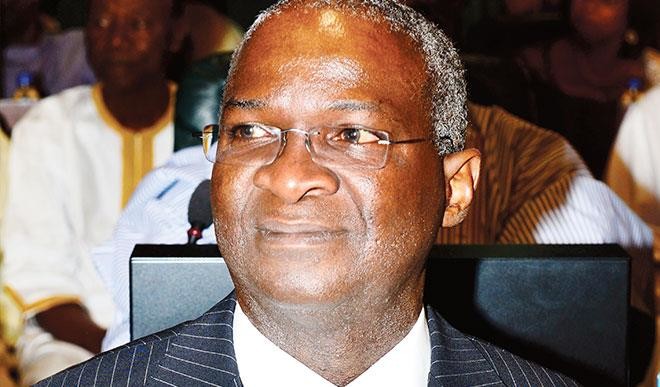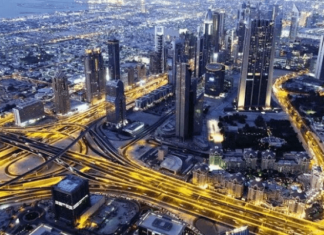The Minister of Power, Working and Housing, Babatunde Raji Fashola, has outlined three phases that are needed to have a stable power supply in Nigeria.
While speaking at The Podium, a Kukah Centre Town Hall meeting on Thursday at Merit House, Abuja, Fashola said “for power, the plan is a road map of three phases, which are incremental power, steady and uninterrupted power phases respectively.
According to the minister, “The number of optimum capacity of power that we have produced after 66years is 5000 megawatt and that is the optimum that Nigeria has produced after 66years of generating power which happened to be on the 2nd of February this year.”
He said it is clear that 5000 megawatts of power are not enough for this population, so, ” the first step is getting more power and that is why incremental power is necessary. The road to incremental power is a process of many initiation.One is the deployment of rural electrification …. It is also the exploitation of other sources of energy like solar , coal and hydro to increase the energy production of the country.All these are in the first phase of the road map .
Speaking on the second phase which is the steady power supply, the minister asserted that “it will require that every individual gets enough energy that he needs . There is a global standard of per capita power consumption and there is a global standard of per capita water utilization per person but whether we get to steady power supply or not it depends on certain issues. One which is data because if we determine the per capita power consumption of energy per person and we are able to guarantee that that person will get that amount of energy then how many people need that energy? Do we know how many we are? So …. reliable meter gathering format is necessary to know what energy is needed in each house hold and to prepare the delivery. But even if we deliver enough energy per capita it will not give us steady power in my own view because we must now create a redundancy and excess capacity over needs. Nevertheless , power equipment would break down because they are all machines and man-made, they would require maintenance, replacement and repairs .
Speaking earlier was the Director Kukah Centre, Dr Arthur Martin Aginam who noted that ” the major challenge of Nigeria ‘s democracy is the abject lack of citizens’ engagement in debating, and more importantly , shaping public policies that often have dramatic impact on their lives.
He said further that the importance of robust debates can never be overemphasized in a democracy. If free and fair elections mark the basic validation of Democratic mandates, citizens’ involvement in public policy making is the oxygen of Democratic governance. Despite a seemingly vibrant citizenry and media . Nigeria’s record in this regard remains very poor, he said.
Also speaking, the CEO Platinum Mortgages Ltd, Engr . Emmanuel Mbaka insisted that housing is a fundamental right of every citizen. It is therefore a duty of every responsible government to provide for its citizens.
On his own part, the past president of the Nigerian Society of Engineers, Olumuyiwa Ajibola suggested that Nigeria needs a design period for major roads . The design period of the roads is always given in a report because the excessive cargo on our major roads is causing a lot of damages but we hope there are laws that will mitigate this, which is why Nigeria needs this design.
In his closing remarks, the chairman of the occasion and Founder Kukah Centre, Bishop Mathew Hassan Kukah in an optimistic mood commended the Minister of Power, works and Housing and said that Fashola did justice to the whole issues and has shown why he is up to the task of fixing Nigeria. It is not about government good intentions but a cummulative function. ” It is still a long journey but what we have here should be an inspiration. The more of this conversation we have, the more responsible our citizens become,” he said.
The event was attended by former speaker, House Representatives, Dimeji Bankole , former foreign affairs minister, Ojo Maduekwe , vice chancellors of private and public universities and many other notables citizens.













